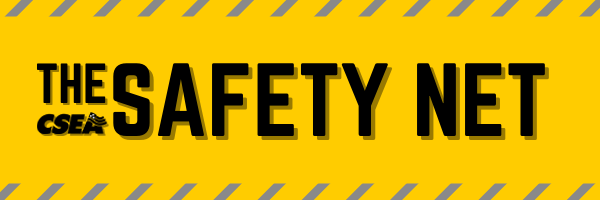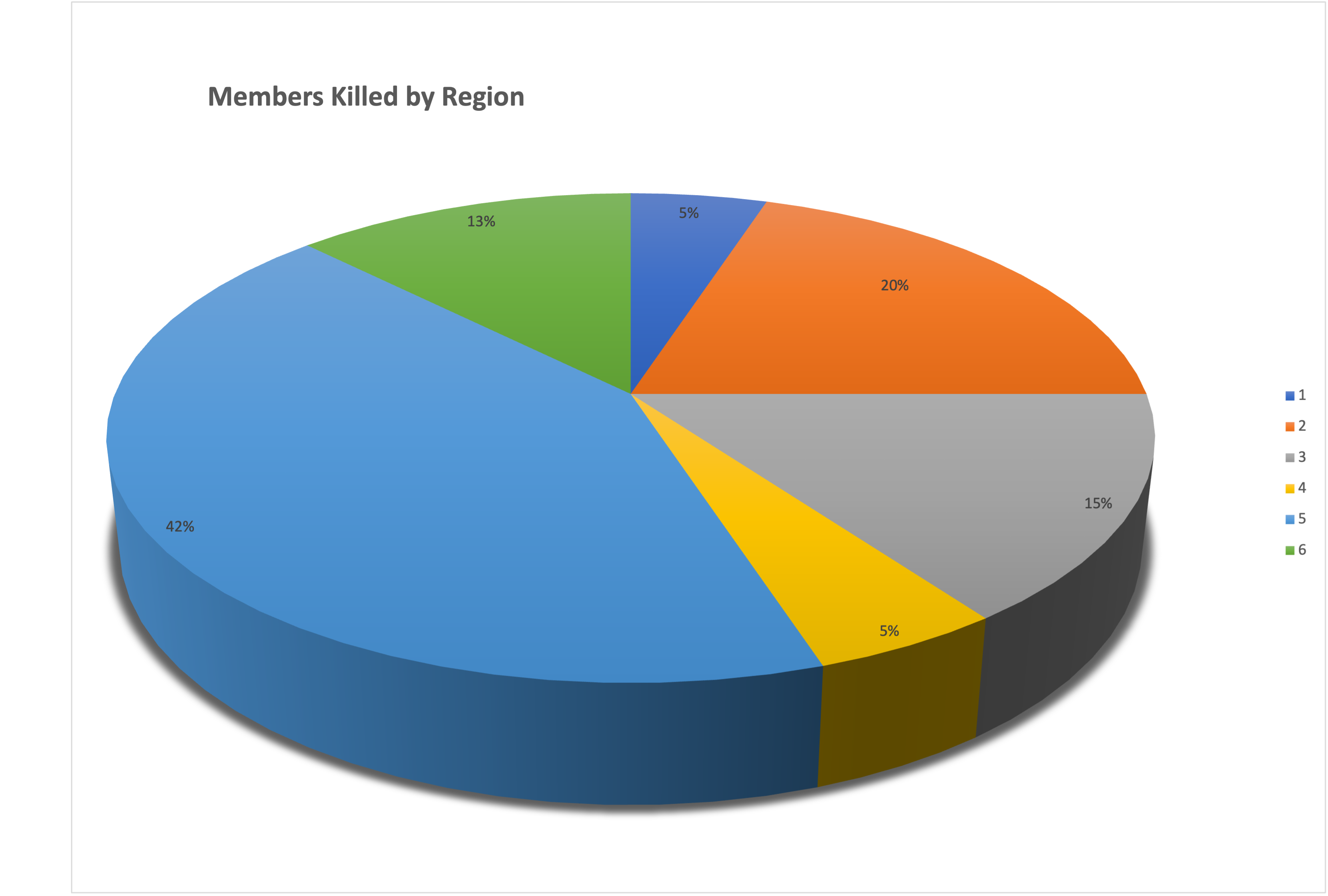
May 2024 Volume 3 | Issue 7:
PPE: It’s your last line of defense, but are you using it?
MOURN FOR THE DEAD, FIGHT LIKE HELL FOR THE LIVING
This past month, CSEA honored those that have died at the workplace. Each day, more than 340 workers are killed and more than 6,000 suffer injury and illness because of dangerous working conditions that are preventable. This includes two CSEA members in the past year: Theresa Steele, a bus monitor at the Mexico Central School District in Oswego County and Aaron Peters, a Park and Recreation Aide 6 in the Niagara State Park Commission.
It’s clear that the fight for safe workplaces continues. Without counting COVID numbers, CSEA loses an average of four workers per year. Many of these members are killed in roadways and 16% of all member fatalities are highway maintenance workers. It’s not just people with operational titles who die at work. Administrative and institutional members account for 24% of our members who are killed at the workplace, 38% of whom were killed in homicides.

OSHA has partnered with the United Support & Memorial for Workplace Fatalities (USMWF) to create a virtual Workers Memorial Wall. To view this wall and to find links to fatality information, visit https://www.osha.gov/workers-memorial.
SOME REASONS WHY WORKERS AREN’T WEARING PPE
Grainger has an editorial article outlining some researched opinions as to why workers aren’t wearing their Personal Protective Equipment (PPE). Unsurprisingly, all four reasons’ root cause is a management failure. The four reasons they suggest are:
- Inadequate Safety Supervision
- Infrequent Safety Training
- Weak Support for Safety
- Poor PPE Evaluation
Unfortunately, since Grainger is in the business of selling consumables, the Hierarchy of Controls is not mentioned once. From elimination to administrative procedures, each control tier focuses on taking care of the hazard. When you get to PPE, the hazard still exists, and that PPE is there to protect you. However, most management principles flip the hierarchy over and use PPE as their first and only control measure.
Employer Requirement for PPE
When PPE is used, OSHA and PESH enforce regulations to assure that it is effective and is properly used and maintained. The provision of head, eye and face, body, hand and foot protection is under the OSHA/PESH, General Requirements for PPE regulation (29 CFR 1910.132). Respiratory and hearing protection are covered under separate regulations 1910.134 and 1910.95 that require the development of separate written plans for their use.
The General Requirements for PPE regulation state that the:
- Employers perform a documented assessment of the workplace that identifies the hazards present that require the use of PPE, the workers that are exposed to that hazard and the PPE provided to protect them.
- Specifications for PPE design are in the eye and face (1910.133), head (1910.135), foot (1910.136), and hand (1910.138) protection standards.
- Employer is required to train the employees on the PPE they are expected to use and how to wear, maintain and store it properly and in the training the employees must be able to show they understood the training provided.
- Employees are expected to properly wear, use and maintain the equipment.
- Employer is to monitor the use of PPE in the workplace.
- Re-training is provided when there is a new hazard requiring a new kind of PPE be worn or PPE is not being used correctly.
- Use of damaged PPE is not permitted and must be immediately replaced.
- PPE must be provided by the employer except for prescription safety glasses (worn home) safety toe footwear (worn home) and logging boots, unless the union contract contains other provisions.
Where can I get more information on this?
Check out our Hazard Controls Fact Sheet
OSHA PPE Page:
https://www.osha.gov/shpguidelines/hazard-prevention.html
https://www.osha.gov/SLTC/personalprotectiveequipment/index.html
CDC/NIOSH:
https://www.cdc.gov/hai/prevent/infection-control-assessment-tools.html
GET INVOLVED
Be an Advocate for Safety: Help Rebuild CSEA’s Safety Network!
Print the Safety Net newsletter in bulletin format: cseany.org/safetynet
Show us a photo of the newsletter bulletin posted in your workplace to receive a prize!
*Email any submissions and ideas to osh@cseainc.org.
MEMBER RESOURCES: OCCUPATIONAL SAFETY & HEALTH
Materials & Publications
View/download – A-Z list of fact sheets: cseany.org/safety-resources
Request Free Prints: Publications Order Form
Workshop Trainings & Webinars
View/Watch – webinar trainings: cseany.org/osh-webinars
CSEA Occupational Safety & Health (OSH) Specialists
Have a general safety concern?
Contact your OSH Specialist here: cseany.org/member-support
WORKERS’ COMPENSATION
Hurt at Work?
CSEA endorses the law firm of Fine, Olin and Anderman
Get started now by clicking https://www.foalaw.com/csea-members/
Or call at 855-637-1207

